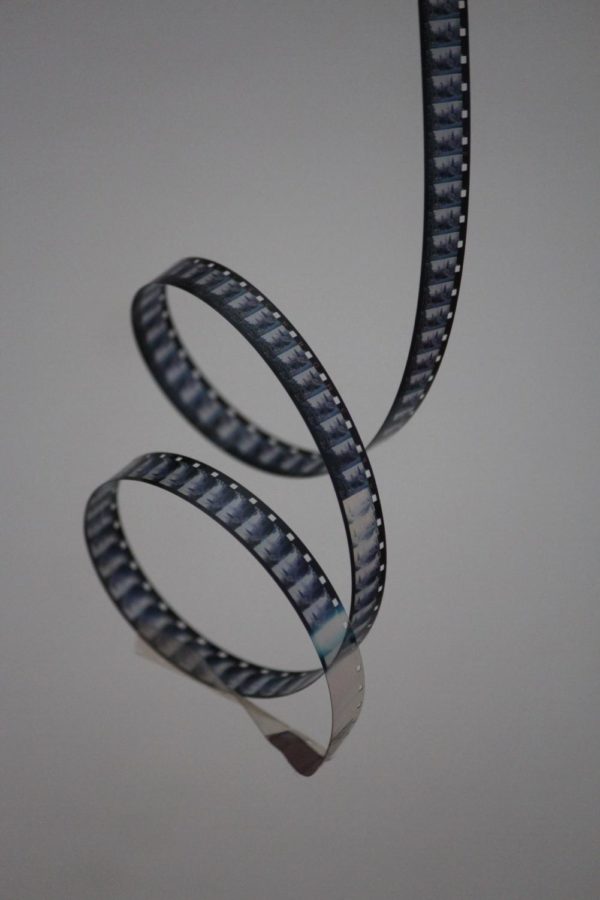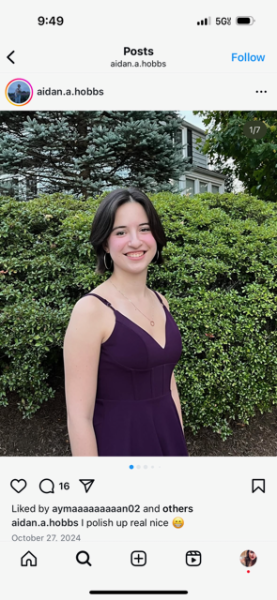A history of racism in award shows
The implications of the Oscars, Grammys, and boycotts
Flashing lights, beautiful gowns on the red carpet, musical performances and the wide smiles of celebrities having their lifelong dreams come true. The Oscars is the award show for the film industry. It seeks to honor the best films, performances, costumes and makeup work and direction of each year. The ceremony is held every February and is aired on television, bringing in millions of viewers around the world. People tune in to watch their favorite film of the year win an award, or perhaps get introduced to films they have not heard of. But as the Oscars approach their 100th ceremony, they bring with it a storied history of racism and ignorance.
In 2015, a campaign finance lawyer named April Reign posted a tweet that went viral. The tweet said “#OscarsSoWhite they asked to touch my hair.” This tweet was in response to the Oscar nominations being announced. Out of the 20 nominations given for the best performance (5 in each of the 4 categories) none included a single person of color. In the following year, it happened again, causing the hashtag to trend once more, bringing serious backlash and controversy to the Academy which runs the Oscars and other award shows. Complaints about the Oscars’ race problem have been made for decades, but with this hashtag it finally hit the mainstream media. With their voices being heard for the first time, Spike Lee and Jada Pinkett Smith lead a boycott of the 2016 Oscars. As a result, the Academy held an emergency meeting and promised they would double the number of men and women of color participating in the voting process.
With the Academy’s bias exposed, criticisms of other awards shows in Hollywood such as the Grammys and Golden Globes have become more prominent. Black artists like Jay-Z, Kanye West and Frank Ocean have all boycotted the Grammys in order to draw attention to the lack of representation in the awards. Following in their footsteps, Sean Combs—commonly known as P. Diddy—boycotted the Grammys in 2020.
“Black music has never been respected by the Grammys to the point that it should be,” Combs said.
Hollywood’s underlying racism has been ignored and covered up for decades. Mrs. Elise Jackson, an English teacher at the school, offered up an explanation as to why this ignorance continues.
“Whenever there are humans, there is going to be bias,” Mrs. Jackson said. “Naturally, there is an inclination to connect with those… who are most similar to us. [When you take a look] at many of the people on the board who make the larger decisions, those are people who typically don’t represent a wide variety of community members, [making it often biased towards white people]”
The Academy board decides who wins and loses the Oscars. They vote on all five nominees and the nominee with the most votes wins that award (except in the best picture category). According to the BBC, in 2016 the board of over 5,000 members had only 554 members of color.
“I feel like when we are talking about the bias and the racism, it’s really by omission,” Mrs. Jackson said. “This is [an instance] where I would say that some of the most biased and racist aspects are microaggressions. I realize this extends outside of this specific academy, but multiple times black actors and actresses and performers are misrepresented in the media, meaning literally the wrong name is attached to the wrong picture.”
In 2015, the Academy posted a picture of Selma actress Tessa Thompson and labeled it with the name of Carmen Ejogo, who plays a different character in the film, illustrating a pattern commonly and continuously seen in the Academy. Films with black leads, and/or with black directors, writers and producers are overlooked and ignored at a disproportionate rate. Adding to this, in 2017, La La Land was mistakenly announced as the winner of best picture instead of Moonlight, a film with an all black cast that was written and directed by two black men. La La Land was the clear Academy favorite in 2017, winning six of its record-tying 14 nominations.
“The fact of the matter is that La La Land was announced as the winner when it was supposed to be Moonlight,” Jackson said. “Some of the most biased and racist things that I’ve seen in my life in general were things that were seemingly unintentional that were due to that bias that they have that goes unrecognized.”
Since 2014, viewership for the Oscars has been on a decline, from 43.7 million in 2014 to just 9.8 million in 2021. This drop in viewership has many reasons, one of them being that viewers are tired of seeing people of color being ignored. A major factor in the drop in viewership has been social media and how it helped amplify the criticisms that have been made for decades
“Over the years, I have become less and less interested in watching. This is really two-fold.” Jackson said. “It partially relates to [the ignorance of the Oscars] and also that the show starts late and ends late on a Sunday.”
Although Hollywood vowed to make a change almost seven years ago, more recent criticisms have surfaced. In 2019, when Tyler the Creator spoke on this after winning Rap Album of the Year for his album IGOR.
“It sucks that whenever we- I mean people who look like me- do anything, they put it in a rap or urban category,” Tyler the Creator said. “Why can’t it just be pop?”
In 2017 only two artists of color won awards on the live telecast, Beyoncé and Chance the Rapper. When Black artists make music in a genre other than hip-hop or rap, they are typically called ‘crossover artists.’
“Why should an artist be a crossover artist?” Mrs. Rosa Reyes, the film teacher at the school said “To me, that almost implies that there are barriers in music.”
Criticisms of Hollywood’s award shows have been made ever since their inception, yet they have vastly gone unheard or ignored. After the hashtag #OscarSoWhite trended, the Oscars made a promise. The number of voters of color has been increasing since 2016, from 554 members to 1,787 members as of 2021, still a very low number. If the academy continues to build a diverse board, the problem will become less and less prevalent. Holding the academy accountable and making them uphold their promise is the only way to ensure that the voices of people of color are heard.
“I [don’t] believe the problem will ever be fully solved… it deals with bias, humanity is biased, we will always be biased,” Mrs. Jackson said. “[However,] I do think there can be more of a consciousness as far as taking steps to be as unbiased as possible, even though that takes longer, takes more insight, and more inward reflection.
Sources:
https://www.vulture.com/2015/01/oscars-got-selma-actresss-tessa-thompson-name-wrong.html
https://thestereovision.com/content/2020/10/2/astoriedhistoryofracismatthegrammys
https://www.bbc.com/culture/article/20210414-has-the-oscars-really-fixed-its-race-problem
https://theburlingameb.org/4029/showcase/racial-bias-in-the-grammys-impacts-our-generation/
https://www.statista.com/statistics/253743/academy-awards–number-of-viewers/










